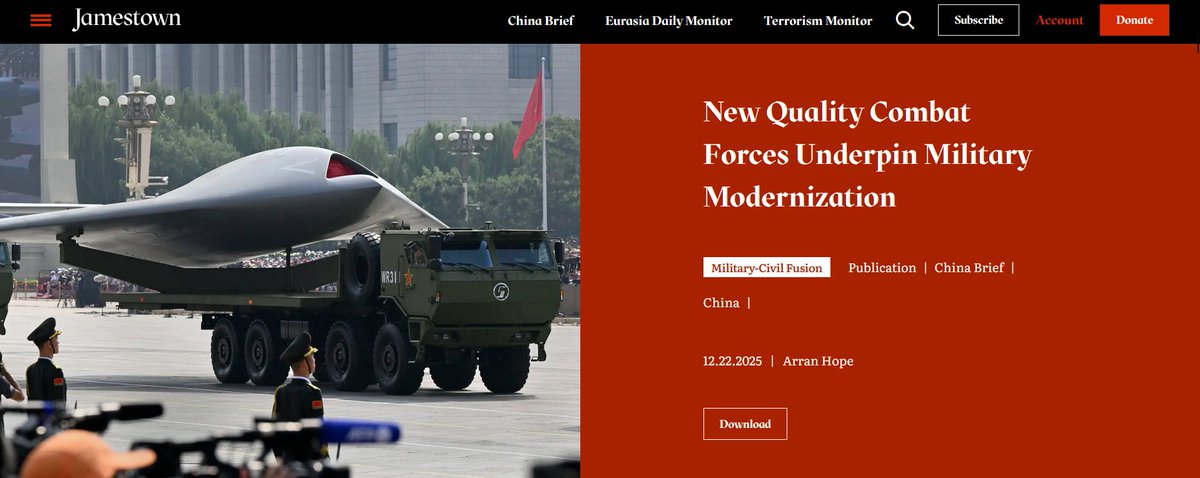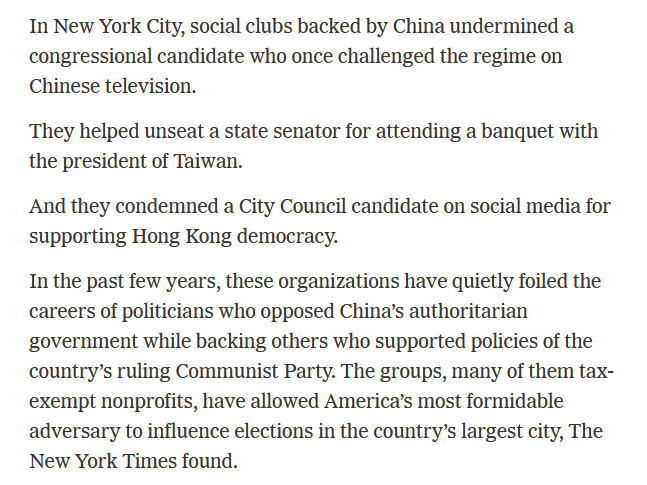
Long takes on 🇨🇳 politics, 🇺🇸 conservatism, and books I find interesting
21 subscribers
How to get URL link on X (Twitter) App


 If you have followed anything said by Chinese leaders since about 2020, you know that China has embarked on a grand quest to dominate 21st century science and technology. I wrote about that here: scholars-stage.org/saving-china-t…
If you have followed anything said by Chinese leaders since about 2020, you know that China has embarked on a grand quest to dominate 21st century science and technology. I wrote about that here: scholars-stage.org/saving-china-t…
https://twitter.com/KitschQuixote/status/1982054937199858017(This is also true for many bearish takes on China’s economy and politics: many ideas start with *Chinese* critics of the existing situation, get parlayed to their western friends in journalism/finance/think tank world, and then come to dominate the western debate about China).
https://twitter.com/clawrence/status/1981490465254846781There are many bad things about China. So many. Could list them for days. Many sources of national weakness. Many real problems, problems that keep Xi up at night.
https://twitter.com/kyleichan/status/1971872248090001808“Does this create the infrastructure and training pipelines that will build an industry of high-paying native jobs?” is not a bad way to to evaluate this sort of thing.
https://twitter.com/EndsArcades/status/1971699008843522104Nobody says “the problem with memorizing times tables is that takes the fun out of math.” Nobody says learning verb conjugations is a pleasant part of learning French.

 Original source:
Original source:https://twitter.com/SpencerHakimian/status/1970564690943107389was the main obstacle in the way of peace. Thus Trump's accommodative tone with the Russians.

 Next time somebody asks me "what does a good analyses of Chinese political fights look like?" I will send them this piece. Gold standard for how this should be done.
Next time somebody asks me "what does a good analyses of Chinese political fights look like?" I will send them this piece. Gold standard for how this should be done.

https://twitter.com/adam_tooze/status/1970151902559318032There are two elements of this.

 Source: apnews.com/article/chines…
Source: apnews.com/article/chines…
https://twitter.com/jeetsidhu_/status/1968105824318001406If Charlie Kirk was Chinese he would have been "invited for tea" back in 2013. He would never have been banned from Weibo with the other Big Vs in 2014. If he persisted in organized action he would have disappeared or placed under house arrest the minute he announced a campus

 I have been thinking about Kirk and his appeal for several weeks now, actually. A producer from his show invited me to come on and talk to Kirk about China and Taiwan.
I have been thinking about Kirk and his appeal for several weeks now, actually. A producer from his show invited me to come on and talk to Kirk about China and Taiwan.https://twitter.com/JosephAddington/status/1965867983827513521Kirk showed us a path that works: building institutions with active mass membership, breaking bread and talking constantly with normal Americans, having courage to stand up for our ideas no matter how hostile the environment, and grounding politics in actual virtuous living.

https://twitter.com/Sam_Dumitriu/status/1965350038894522633
 But I also think communists are especially susceptible to think of problems in terms of engineering, and this has been true for a very long time (eg. Stalin's "Engineers of the soul").
But I also think communists are especially susceptible to think of problems in terms of engineering, and this has been true for a very long time (eg. Stalin's "Engineers of the soul").
https://twitter.com/ryanburge/status/1962505354240995730(That is how I learned Khmer, btw!)

 @PekingMike et al. in the New York Times: nytimes.com/2025/08/25/nyr…
@PekingMike et al. in the New York Times: nytimes.com/2025/08/25/nyr…


 I also recommend them if you passed through these classes without ever feeling like you understood, at a deeper level, why you were doing the manipulations you were doing. Braver will fix that.
I also recommend them if you passed through these classes without ever feeling like you understood, at a deeper level, why you were doing the manipulations you were doing. Braver will fix that.